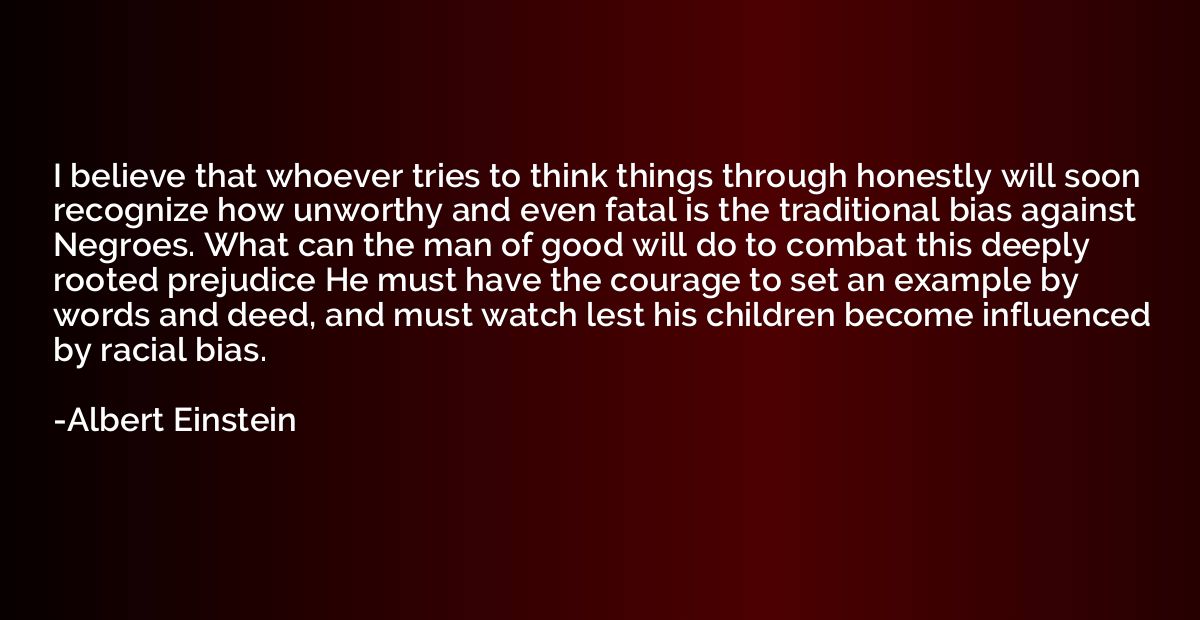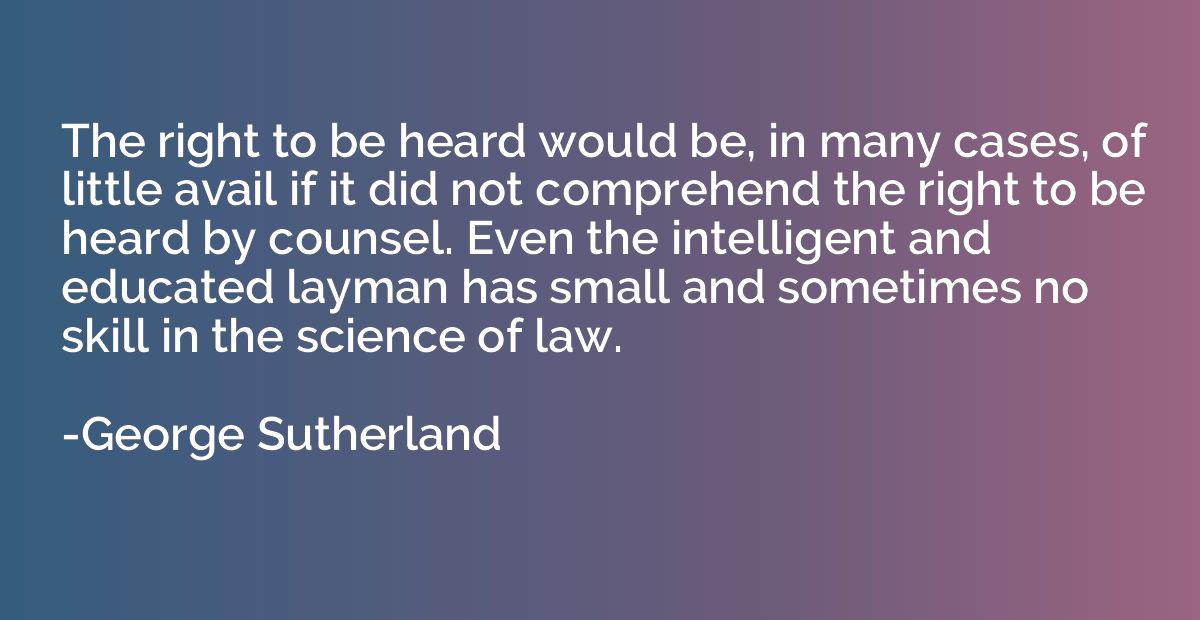Quote by Albert Einstein
I believe that whoever tries to think things through honestly will soon recognize how unworthy and even fatal is the traditional bias against Negroes. What can the man of good will do to combat this deeply rooted prejudice He must have the courage to set an example by words and deed, and must watch lest his children become influenced by racial bias.

Summary
In this quote, the author underscores the importance of critically examining and rejecting the long-standing prejudice against black people. They highlight the need for individuals to reflect on their own biases and take proactive measures to challenge and combat racial discrimination. The author emphasizes that people of goodwill should not only speak out against prejudice, but also exhibit courageous behavior in their everyday actions. Additionally, they acknowledge the responsibility of ensuring that future generations are not influenced by racial biases, urging individuals to actively monitor and address any discriminatory attitudes that may arise in their children.














